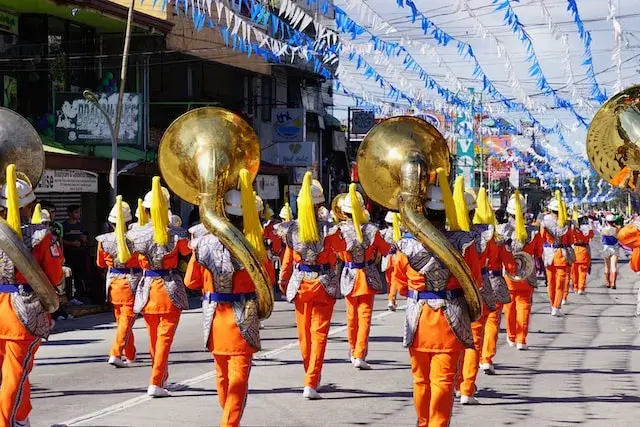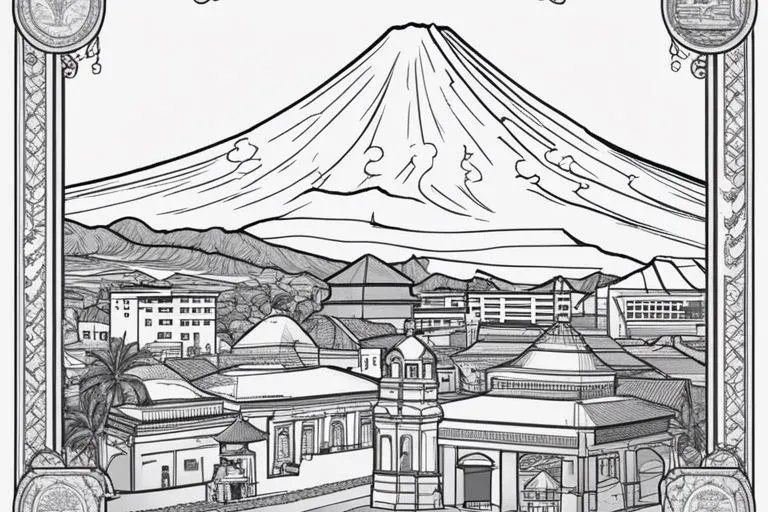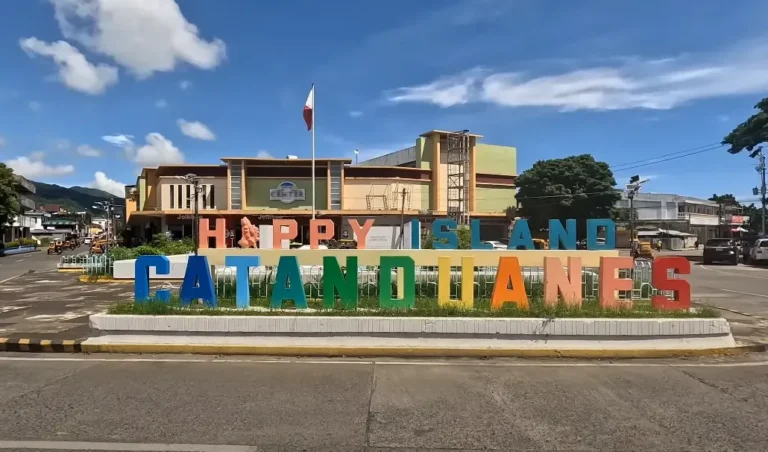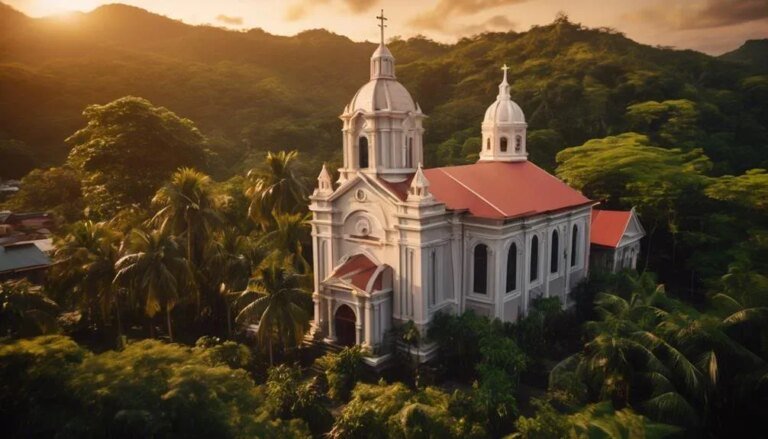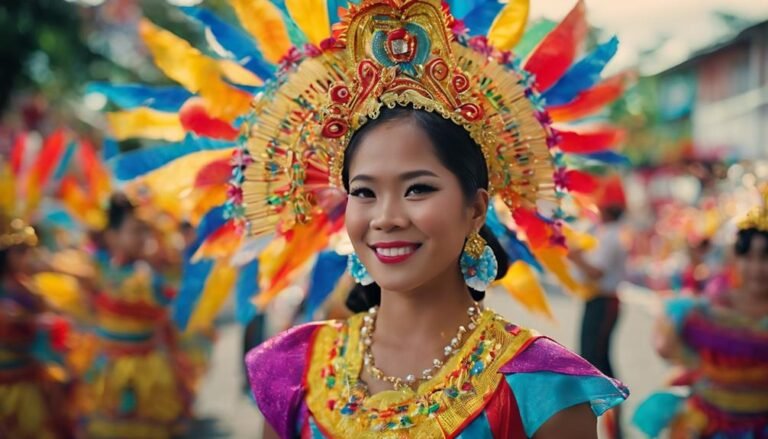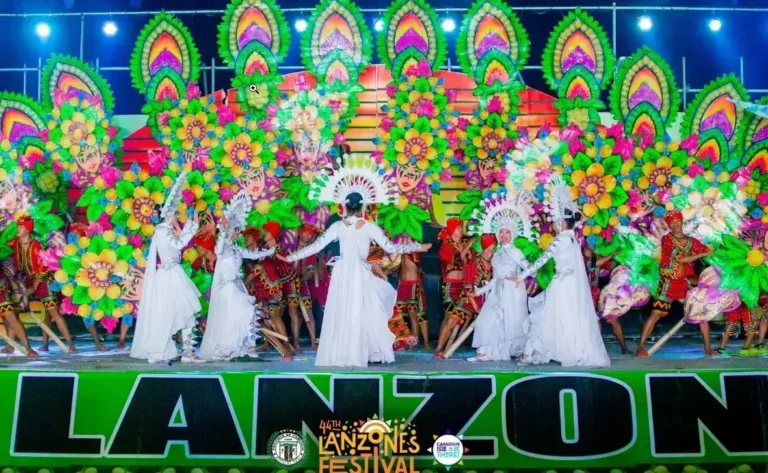Kadayawan Sa Dabaw Festival Davao City Philippines
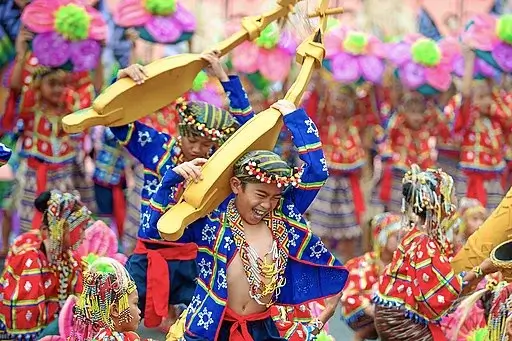
Image Source: Wikimedia Commons
Welcome to the vibrant and enchanting world of the Kadayawan Festival! In the City of Davao, Philippines, this annual celebration takes place every third week of August, bringing together the diverse communities of the region in a joyous homage to life and gratitude.
Rooted in ancient rituals of thanksgiving, the festival has evolved into a grand showcase of Davao’s rich cultural heritage, blending indigenous traditions with the influences of migrant settlers.
From its humble origins at the foot of Mount Apo to its present-day status as one of the country’s most renowned festivals.
The Kadayawan Festival continues to captivate visitors with its captivating mix of tribal, industrial, and artistic elements. Join us as we explore the origins, highlights, and significance of this extraordinary celebration that embodies the spirit and abundance of Davao City’s blessings.
Key Takeaways
- Kadayawan Sa Dabaw Festival is a vibrant harvest festival in Davao City, Philippines, that evolved from a simple day of thanksgiving for a plentiful harvest into a week-long, city-wide celebration.
- The festival pays tribute to Mother Earth’s generosity and is a celebration of abundance, gratitude, and life.
- Davao City is home to diverse indigenous tribes, each contributing unique cultural practices to the festival, such as vibrant tribal costumes and ancient storytelling.
- The festival allows for understanding, appreciation, and celebration of the cultural practices of Davao’s tribes, showcasing their remarkable diversity and distinct customs and traditions.
Facts About Kadayawan Sa Dabaw Festival
| Facts | Explanation |
|---|---|
| Type of Festival | Cultural Festival |
| Brief History of the Festival | Kadayawan Sa Dabaw Festival is an annual week-long celebration held in Davao City, Philippines. It started in the 1980s as a way to showcase the city’s bountiful harvest and diverse cultural heritage. The festival is a thanksgiving for the city’s manifold blessings, and it highlights the harmonious coexistence of its residents, regardless of their religious, ethnic, or cultural backgrounds. |
| Brief History of the City | Davao City, also known as the “Durian Capital of the Philippines,” is located in the southeastern part of Mindanao island. It was founded in 1848 by Spanish conquistadors and has since grown into a bustling metropolis. The city played a significant role in Philippine history, serving as a strategic trading post during the Spanish colonial era and later becoming a center for commerce, industry, and tourism in the region. |
| Location of the City in the Country | Davao City is situated in the southern part of the Philippines, specifically in the province of Davao del Sur. It is approximately 1,500 kilometers southeast of Manila, the capital city of the country. |
| How to Reach the City | – By Air: Davao City has an international airport, Francisco Bangoy International Airport, which is served by numerous domestic and international flights. – By Sea: The city’s port, Sasa Wharf, accommodates passenger ferries from various parts of the Philippines. – By Land: Davao City is accessible by bus or private vehicle through well-maintained highways connecting it to neighboring cities and provinces. |
| Nearby Cities or Towns and Their Distance | – Tagum City (Davao del Norte) – 55 km – Panabo City (Davao del Norte) – 30 km – General Santos City (South Cotabato) – 100 km – Mati City (Davao Oriental) – 170 km – Kidapawan City (Cotabato) – 170 km |
| Google Map Link to the City Location | Davao City on Google Maps |
| Ethnic Information | Davao City is home to various ethnic groups, including the Lumad tribes (indigenous peoples), Moros (Muslims), and migrants from different regions of the Philippines. This diversity is celebrated during the Kadayawan Sa Dabaw Festival, where traditional dances, music, and crafts showcase the rich cultural heritage of these communities. |
| Festival Main Events and Activities | – Indak-indak sa Kadalanan (Street Dancing Competition) – Pamulak sa Kadayawan (Floral Float Parade) – Hiyas sa Kadayawan (Beauty Pageant) – Tribal Village Exhibit – Agri-Trade Fair – Food Festivals showcasing local delicacies – Cultural Performances – Art exhibits and competitions – Street parties and concerts |
| Festival Etymology | “Kadayawan” is derived from the Mandaya word “Madayaw,” which means “good” or “beautiful.” The festival embodies the spirit of thanksgiving for nature’s gifts and the harmonious living of diverse cultures in Davao City. |
| Other Famous Tourist Attractions in the City | – Mount Apo (the highest peak in the Philippines) – Philippine Eagle Center – Eden Nature Park and Resort – D’ Bone Collector Museum – People’s Park – Malagos Garden Resort – Samal Island (known for its white sand beaches) – Crocodile Park – Jack’s Ridge (scenic viewpoint and dining area) |
| Landmarks in the City | – San Pedro Cathedral – Museo Dabawenyo (Davao Museum) – Lon Wa Buddhist Temple – San Pedro Street (shopping district) – Aldevinco Shopping Center (known for handicrafts and souvenirs) – Magsaysay Park – Abreeza Mall – SM Lanang Premier |
| Related Festivals in the Same Region | – Kadayawan Festival (Tagum City, Davao del Norte) – Kalivungan Festival (Kidapawan City, Cotabato) – Tuna Festival (General Santos City, South Cotabato) – Pakaradjan Festival (Mati City, Davao Oriental) – Araw ng Dabaw (Davao City) |
Understanding the Harvest Festival
In order to fully appreciate the Kadayawan Sa Dabaw Festival, you’ve got to delve into its roots as a vibrant harvest festival.
This celebration was born out of the indigenous tribes’ deep appreciation for nature’s bounty. Originally, it was a simple, quiet affair, a day of thanksgiving for a plentiful harvest. Over time, it evolved into the week-long, city-wide spectacle you see today.
You can’t ignore the harvest significance: it’s the heart of the festival. The bountiful fruits, the lively street dances, the radiant floats – all these are tributes to Mother Earth’s generosity.
Understanding the festival’s origins gives you a taste of the freedom that comes from living in harmony with nature. So, come and immerse yourself in Kadayawan – a festival of abundance, gratitude, and life.
Exploring Davao’s Tribes
Let’s explore the rich tapestry of Davao’s tribes, each one with unique cultural practices that add color to the Kadayawan Sa Dabaw Festival.
You’ll be amazed by the diversity of these tribes, each offering a different perspective and flavor to the celebration.
Tribal Cultural Practices
You’ll find that each tribe in Davao has a unique set of cultural practices which you can explore during the Kadayawan Sa Dabaw Festival.
Tribal costumes, resplendent with vibrant colors and intricate details, are a sight to behold. Each outfit tells a story of the tribe’s history, their struggles, triumphs, and rich heritage. But it doesn’t stop there.
Ancient storytelling, a cherished practice, is another way to delve into Davao’s tribal cultures. Listen as elders weave tales handed down from generations, painting vivid pictures of their ancestors’ lives and customs.
It’s not just a festival, it’s an invitation to journey into the heart of Davao’s tribes, to understand, appreciate, and celebrate their unique cultural practices.
Davao Tribal Diversity
There is a remarkable diversity among Davao’s tribes, each with its distinct customs and traditions.
These tribes are the lifeblood of Davao, their vibrant cultures are reflected in the tribal cuisine exploration and the rhythmic beats of Davao’s native music.
Here’s a glimpse of Davao’s tribal diversity:
| Tribe | Unique Tradition |
|---|---|
| Ata | Known for their intricate beadwork |
| Bagobo | Renowned for their warrior dance |
| Matigsalug | Celebrated for their eagle dance |
| Ovu-Manuvo | Acclaimed for their epic chanting |
| T’boli | Famous for their dream weavers |
So, as you explore Davao, immerse yourself in these rich tribal cultures, tasting the tantalizing flavors of tribal cuisine and swaying to the captivating sounds of native music.
Appreciating Ethnic Diversity
At the heart of the Kadayawan Sa Dabaw Festival, you’re given a unique opportunity to appreciate the vibrant ethnic diversity of Davao City, Philippines.
You’ll marvel at the ethnic fashion, with its explosion of colors and intricate designs, a testament to the creativity and artistry of Davao’s indigenous people. But it’s not just about the visuals.
This festival is an intercultural dialogue, allowing you to immerse in the rich tapestry of customs, traditions, and histories that make up the city’s diverse ethnic groups.
You’re not just a spectator; you’re a participant, promoting understanding and unity while celebrating freedom and diversity.
So, come and experience the Kadayawan Sa Dabaw Festival, where you get to appreciate ethnic diversity in the most authentic, engaging way.
The Beauty of Floral Floats
Amid the Kadayawan Sa Dabaw Festival, you can’t miss the stunning beauty of the floral floats. They are masterpieces of floral design techniques, showcasing the artistic talents of Davao’s locals.
Each float is meticulously adorned with a plethora of vibrant, fragrant flowers, creating a spectacle of colors that is nothing short of breathtaking.
The parade organization is a testament to the community’s unity and creativity. You’ll witness floats representing various themes, each telling a unique story of Davao’s culture and heritage.
The floats aren’t just beautiful, they’re symbolic, embodying the free spirit of the festival and the city’s residents. So, lose yourself in the allure of these floral marvels, and feel the palpable sense of freedom they exude.
Preserving Indigenous Culture
You’ll enjoy seeing the indigenous traditions showcased at the Kadayawan Sa Dabaw Festival. It’s not just about the spectacle, though – you’ll also notice the efforts being made to preserve cultural heritage.
This is an opportunity for you to appreciate the rich tapestry of indigenous culture firsthand.
Indigenous Traditions Showcase
During the Kadayawan Sa Dabaw Festival, you’ll witness firsthand how Davao City takes great strides to preserve and showcase its indigenous culture and traditions. Indigenous music vibrates through the city, with rhythms and melodies that tell tales of ancestral wisdom and ancient rituals.
Tribal fashion is another highlight, with vibrant patterns and unique designs reflecting centuries-old traditions and the creative spirit of the indigenous people.
You’ll be swept up in the freedom of expression and the deep respect for cultural heritage that permeates every aspect of the festival. It’s not just a vibrant spectacle, but a living testament to the resilience and richness of Davao City’s indigenous cultures.
Your participation in the festival helps ensure these beautiful traditions continue to thrive for generations to come.
Cultural Preservation Efforts
Embracing these cultural showcases, you’re playing a significant role in the preservation of Davao City’s indigenous culture. Your participation is a stand for cultural safeguarding and tribal empowerment.
Each dance, ritual, or craft you witness is a vivid thread in the vibrant tapestry of indigenous heritage.
By appreciating, promoting, and supporting these cultural elements, you’re contributing to the survival of unique traditions that are the soul of Davao City.
Here’s a table to better understand these efforts:
| Activities | Impact |
|---|---|
| Tribal gatherings | Fosters unity, understanding |
| Traditional crafts | Preserves skills, provides income |
| Indigenous music, dance | Protects cultural identity, heritage |
| Tribal language classes | Safeguards linguistic diversity |
| Eco-tourism | Encourages sustainable living, respect for nature |
Overview of Mindanao Festivals
Ever wondered what other vibrant festivals you can enjoy in Mindanao, apart from the Kadayawan Sa Dabaw? Well, there’s a whole array of celebrations for you to explore, each one as rich and colorful as the next.
From the Kaamulan Festival’s showcase of indigenous culture to the exciting Kalilangan Festival that marks the region’s history, there’s so much to see. Immerse yourself in the local scene and get a taste of authentic Mindanao cuisine, an integral part of each celebration.
Each festival’s origins are deeply rooted in the history and traditions of the region, making it a cultural experience you won’t forget. So, if you’re looking for freedom in exploration, Mindanao’s festivals await you.
The Unique Durian Feast
At the Kadayawan Sa Dabaw Festival, you’ll find yourself relishing in the unique Durian Feast, an irresistible highlight that you shouldn’t miss.
This feast showcases different Durian varieties, giving you a chance to taste the ‘King of Fruits’ in its many forms. From the sweet and creamy Puyat to the bittersweet Duyaya, each variety offers a unique flavor profile that’s sure to tantalize your taste buds.
In addition, you’ll get a glimpse into Durian farming, a significant industry in Davao City. Local farmers are proud to display their harvest, and you’ll have the opportunity to learn about the cultivation process.
This feast is a celebration of freedom, a sensory adventure that embodies the spirit of Kadayawan. Don’t miss out!
Delving Into Kadayawan Rituals
After enjoying the Durian Feast, your exploration of the Kadayawan festival isn’t complete without delving into its rich array of cultural rituals. These rituals carry profound ritual significance, reflecting the deep connection between the indigenous tribes and their land.
You’ll witness the vibrant tribal attires, each unique to the eleven tribes of Davao City, a spectacular sight that celebrates diversity and unity. The rituals, often accompanied by rhythmic music and dance, will pull you into a captivating world of tradition and spirituality.
The freedom to immerse yourself in these rituals is a privilege, an opportunity to learn and appreciate the rich cultural heritage of Davao City. So, let go, engage, and experience the profound beauty of Kadayawan rituals.
Engaging in Tribal Sports and Cultural Shows
The excitement doesn’t stop at rituals; you’ll also get a chance to engage in tribal sports and witness cultural shows that are integral parts of the Kadayawan Festival.
The tribal games exploration is a thrilling journey into the heart of indigenous Filipino sports. You’ll marvel at the agility, strength, and skills on display, and maybe even participate yourself. Embrace the spirit of friendly competition and learn a new game or two.
Then, as the day unwinds, you’re in for a treat with the cultural performance appreciation. Immerse yourself in the rich tapestry of Davao’s heritage.
The dances, songs, and stories shared will captivate your heart and invigorate your spirit. This is more than just a festival; it’s a celebration of life, freedom, and cultural diversity.
What are some other popular festivals in Davao City, Philippines?
Davao City, Philippines, is known for its vibrant celebrations. Alongside the renowned Kadayawan Festival, other popular festivals in Davao City include the Araw ng Dabaw, where locals honor the city’s foundation, and the Pasko Fiesta, a grand Christmas celebration. These festivities reflect the rich cultural heritage and warm spirit of celebrations in the Philippines.
Summary Of Kadayawan Festival Philippines
| Fact | Description |
|---|---|
| Name | Kadayawan Festival |
| Location | Davao City, Philippines |
| Type | Thanksgiving / cultural festival |
| Date | Third week of August |
| Description | The Kadayawan Festival is an annual celebration in Davao City, Philippines, to give thanks for the gifts of nature and the local culture. |
| Previous Name | Apo Duwaling Festival |
| Tribes Highlighted | 11 tribes of Davao City |
| Street Dancing | Indak-Indak sa Kadalanan showcases the diverse indigenous cultures of the region. |
| History | The festival started in 1970 with Mayor Elias B. Lopez’s encouragement for tribes to showcase their thanksgiving rituals. |
| Official Name | Kadayawan Festival was officially named in 1988 by then Mayor Rodrigo Duterte. |
| Official Website | Official website of Kadayawan Festival |
| Tourist Attraction | Davao City |
| Harvest Festival | Yes |
| Related Topics | Mindanao festivals, Culture of Davao City, Tourist attractions in Davao City, Harvest festivals |
Conclusion
In conclusion, the Kadayawan Sa Dabaw Festival is a vibrant celebration in the City of Davao that showcases the rich cultural heritage and bountiful harvest of this island.
Originating from a ritual of thanksgiving by ethnic tribes, it has evolved into a grand festival of festivals, attracting both locals and tourists alike.
With its diverse activities and highlights, such as the Hudyakaan sa Kadayawan, Lumadnong Gama, Indak-Indak sa Kadalanan, and Pamulak sa Kadayawan, the festival brings together tribal traditions, environmental projects, indigenous performances, street dancing competitions, and a grand parade of floral floats.
Through this convergence of tribal, industrial, and arts and entertainment aspects, the Kadayawan Sa Dabaw Festival truly embodies the spirit of gratitude and celebration for the blessings bestowed upon Davao City.

